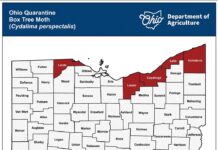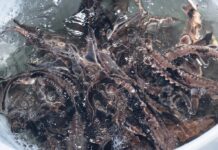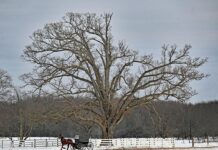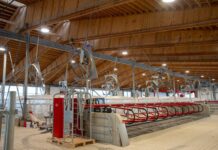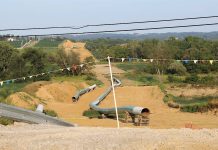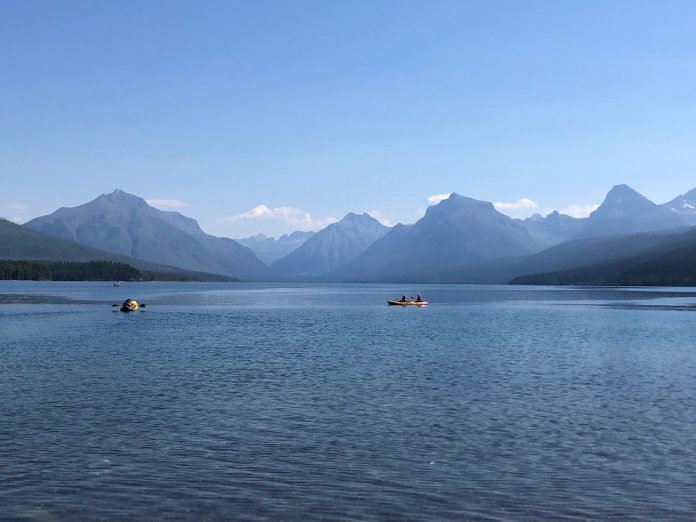
After traveling for over a week across the western United States, we finally reached our farthest destination, West Glacier, Montana. Along the way, we drove through the Flathead Lake region of the state.
The crystal clear waters were mesmerizing and so unlike our lake water in Ohio. When I used to think of Montana, I thought of high mountain peaks.
However, it was the crystal clear water that stole the show during our stay there. Our campsite was close to two lakes, Lake McDonald and Lake Five. Both of the lakes were clearer than any lake water I have ever swum in before. Even in water deeper than six feet, I could still see my toes perfectly.
As we kayaked to deeper water, the clear water transitioned to a beautiful shade of aquamarine. While traveling, we noticed signs along the freeway that said all watercraft had to be examined before entering Montana waterways or lakes.
Invasion mussels
Montana officials are trying to stop zebra and quagga mussels from entering the pristine waters of the state. Montana Fish, Wildlife and Parks officials, along with National Park Rangers, inspect all watercraft entering the state, including our inflatable kayak.
Invasive mussel larvae were first detected in Montana in the fall of 2016. The fear is that mussels would damage Montana’s water just like they did in the Great Lakes and other bodies of water across the US.
Invasive mussels first appeared in the Great Lakes water in the 1980s. Ballast water tanks of international freighters are thought to be the vessels of transit for the invasive species. Zebra and quagga mussels originated in the Caspian Sea region of Europe. They can be found clinging in clumps to the underside of boats and man-made structures like pipelines.
Unfortunately, there are no known predators of zebra mussels. They multiply quickly. In just one season, a female zebra mussel can release close to a million eggs.
Encourages algae growth
At a cursory glance, Lake Erie’s water seemed to benefit from harboring the mussels. The water appeared to be clearer and cleaner than it had in decades. However, the real damage washes ashore in the form of algae. The mussels increased water clarity but allowed sunlight to reach deeper levels, fueling the growth of blue-green algae.
Zebra and quagga mussels disrupt the food chain supply by eating everything they can filter except microcystis, a bacterium. They also attach themselves to other animals.
I can understand why officials meticulously checked our kayak each day before we used it in Montana. Since it turned out that we were visiting during a long heatwave, we did spend most of our time near water.
Glacier National Park is brimming with over 700 miles of hiking trails; however, so we couldn’t resist a couple of hiking trails — especially if they led to waterfalls.
The main road through the park is the infamous Going-to-the-Sun Road. It took us over two hours to traverse the entire 50 miles extending from one side of the park to the other. At times, it felt like we were driving in the clouds. The highest point is Logan’s Pass at 6,646 feet.
Effects of wildfires
Our view of the mountains was beautiful, but it was affected by wildfire haze. Unfortunately, wildfires are not unusual occurrences in Glacier National Park. Typically the wildfire season begins in early August.
On one of our hikes, we passed through the area directly hit by the Howe Ridge wildfire of 2018. The Howe Ridge Fire burned many private homes and historic cabins to the ground. By the time the fire was reduced to smoldering, it had burned over 13,000 acres. The total cost of fighting the fire was over 12 million dollars.
The Howe Ridge Fire was caused by dry lightning strikes, but many others are human-caused wildfires.
Even with wildfire haze, the true beauty of the wilderness couldn’t be hidden. Wildflowers are colorful dots along the roads and alpine meadows looked peaceful in the distance. I could have stared at the rugged mountains for hours.
Our final day on our epic journey began and ended the same way, swimming and kayaking on Lake McDonald. We were there in the early morning watching the diving ducks and their ducklings scuttle across the water with the mountains as the backdrop. We were there, again, as the sun finally set around 10 p.m.
As the sun slipped down towards the horizon, we contentedly knew our vacation was over and it was finally time to head home toward Ohio.


